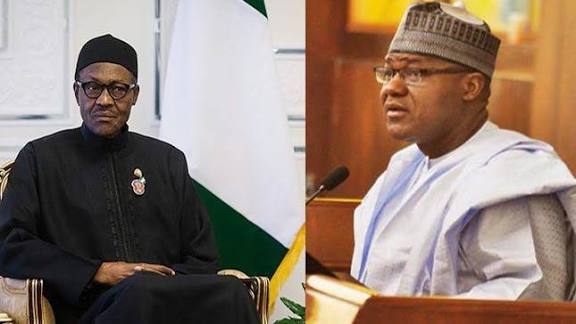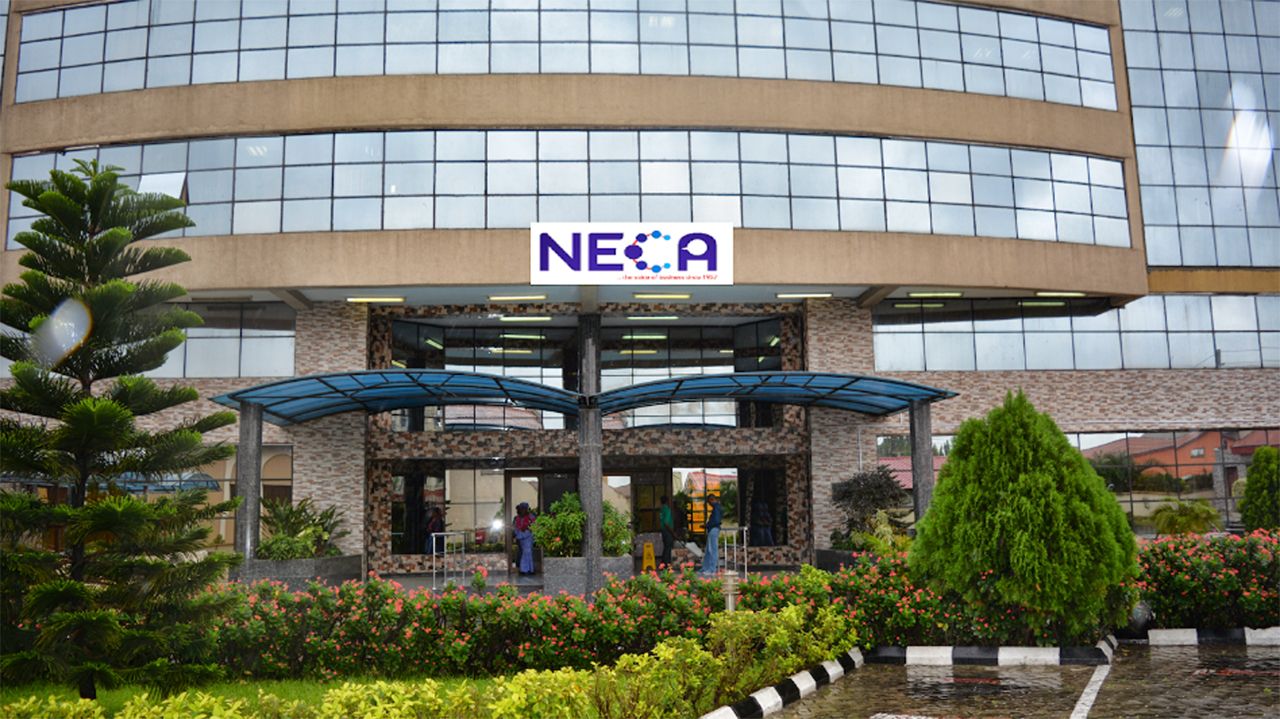Isaac Samuel
Former Speaker of the House of Representatives, Yakubu Dogara, has attributed the decline of the value of naira to economic policies of the previous administration, which he said saw N22.7 trillion printed and injected into the economy.
Dogara also described the foreign loan and crude oil–tied measures that sustained it as nothing short of voodoo economics.
Stating that the policy under late President Muhammadu Buhari undermined the currency’s value , Dogara argued that the massive liquidity injection, coupled with dual exchange rates and unproductive forex allocations, left the nation’s economy teetering on the brink of collapse by the time President Bola Ahmed Tinubu assumed office.
Dogara stated this while delivering the maiden distinguished parliamentarian lecture organised by the House of Representatives Press Corps at the National Assembly Complex, Abuja.
His lecture, titled “Navigating Tax Reform in Nigeria: Insights on President Tinubu’s Policies”, examined the origins, scope, and expected impact of the tax reforms encapsulated in the Nigeria Tax Act (NTA) 2025 and related legislation.
The former Speaker, who now chairs the board of National Credit Guarantee Company, said President Tinubu inherited a troubled economy riddled with economic debris, including excessive deficit financing through Ways and Means, dual exchange rates that enriched a few at the expense of many.
“By the time President Tinubu took office, the economic debris of the nation had become too conspicuous to be ignored, N22.7 trillion had been printed and injected into the economy in the name of ways and means thereby destroying the value of the Naira in our pockets.
“Also the dual exchange rate meant that some anointed people were making hundreds of millions of Naira off forex allocations from the Central Bank of Nigeria (CBN) without producing any goods or offering any services whatsoever and tying our crude sales to foreign loans in the name of forward sales of crude was fast becoming the order of the day. Some of the foreign loans had been procured in order to help strengthen the Naira, a measure that could only be sustained by voodoo economics”, he stated.
He commended the current government for implementing urgent reforms to avert economic collapse, particularly the 2025 tax reform package.
The reforms, he said, consolidate 16 federal tax laws into four principal Acts, expand the tax base to include digital services, virtual currencies, and FX gains, and introduce minimum tax rates for large companies.
Dogara stressed that the reforms aim to protect vulnerable Nigerians, encourage investment, enhance competitiveness, and provide the government with resources for infrastructure, education, healthcare, and security.
Addressing concerns over the five per cent fuel surcharge, Dogara clarified that it is not a new tax, adding that it will exempt household energy products like kerosene and LPG, and will only take effect under ministerial approval published in the official gazette.
Despite applauding the boldness of the reforms, Dogara highlighted challenges around uncertainty in interpretation, technological readiness, skilled manpower, and short-term compliance costs.
“The drive towards full digitalization, from e-invoicing to automated tax filings, promises efficiency but demands a significant upgrade in our own digital capabilities and cyber security,” he said.
He said businesses must invest in systems and training to adapt, adding that successful tax reform requires public trust.
He urged the government to ensure revenues raised are transparently deployed to build roads, power industries, and improve hospitals and schools.
Speaker of the House of Representatives, Tajudeen Abbas, said Tinubu’s tax reforms was a decisive step toward simplifying compliance, broadening the tax net, and easing the burden on ordinary Nigerians.
Abbas who was represented by the House Spokesperson and Chairman, Committee on Media and Public Affairs, Akin Rotimi said the establishment of the Presidential Committee on Fiscal Policy and Tax Reforms and the harmonisation of tax collection processes set to take effect in January 2026, represent a significant intervention that promises to re-engineer the nation’s tax administration architecture for greater efficiency, fairness, and transparency.
According to him, the National Assembly has devoted considerable energy to diligently processing the far-reaching legislation transmitted by the executive, through robust debates, stakeholder consultations, and committee work.
Executive Chairman, Federal Inland Revenue Service (FIRS)Dr. Zacch Adedeji called for stronger collaboration between the media and tax authorities in deepening public understanding of ongoing fiscal reforms.
Represented by Special Assistant to the FIRS Chairman on Tax Policy, Olufemi Olarinde, the FIRS boss acknowledged the historic role of the press as the fourth estate of the realm, stating that its influence on public opinion makes it indispensable to the success of Nigeria’s economic and tax reforms.
He urged journalists to go beyond surface reporting by fully acquainting themselves with the new tax laws, insisting that effective communication of reforms can only come from deep understanding.
Executive Director of Civil Society Legislative Advocacy Centre (CISLAC), Auwal Ibrahim Musa Rafsanjani, while urging the government to ensure transparency, accountability, and fairness in tax implementation, said the reforms, if properly implemented, would strengthen Nigeria’s fiscal position.
“Nigeria is losing a lot of revenue due to tax avoidance, evasion, and the failure of international corporations operating in our country to meet their obligations. In addition, we have seen a situation where multiple government agencies want to play the role of tax collectors, creating exploitation and dual taxation. A unified, transparent system is urgently needed,” he said.
He noted that women and vulnerable groups often bear the brunt of unfair tax practices, stressing that a fairer and more equitable regime would address such imbalances.
While commending the House of Representatives for initiating dialogue on the reforms, Rafsanjani urged the Senate to organise a similar engagement to deepen public awareness.
According to him, many Nigerians still lack adequate understanding of the provisions of the new tax laws, which makes sensitisation and education critical.
“It is not enough to legislate. We must ensure implementation in a manner that benefits the Nigerian people. The law must not be selective. The rich, the big men and women who have enjoyed government privileges, must also be taxed fairly. They must pay back to the Nigerian people and the Nigerian state,” he stressed.
Chairman of the Nigeria Union of Journalists (NUJ), Federal Capital Territory (FCT) Council, Comrade Grace Ike, called on the government to ensure transparency, accountability, and effective deployment of tax revenues to infrastructure development as it pursues sweeping tax reforms under President Bola Tinubu.
Ike said the reforms represent bold steps toward modernizing Nigeria’s fiscal system, broadening the tax base, and reducing over-dependence on oil revenues.





